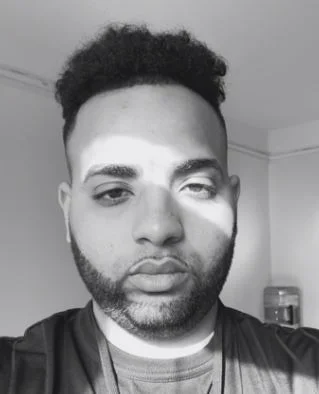Op-Ed: Let’s Treat ‘Close to Home’ Kids as Members of Our Community
/Amre Mohamed is a youth specialist with the Administration of Children’s Services. Photo courtesy of ACS.
By Amre Mohamed
They say if you do the crime, do the time. But when you’re only 15 years old, what should that time look like?
I’m grateful that I was one of the first youth admitted to a New York City program that’s designed to help young people get their lives on track.
The “Close to Home” program started several years ago. Once a court finds that a teen committed a mid-level crime, he or she is sent to live in a structured, secure group home, usually for several months. There are more than 25 such homes in communities around the five boroughs. I lived in one in Ozone Park for seven months. And it changed my life.
I learned the importance of education, a strong work ethic, family time and respect. Because this program kept me in New York City, I was able to continue school classes and see my family regularly. Had I been arrested just a year prior, I would have been sent upstate, locked up and likely not be the man I am today.
Today, I work with youth at the same “Close to Home” facility in Ozone Park I lived in just six years ago.
It’s the same “Close to Home” facility that expected me to wash my dishes after dinner and do my laundry; the same “Close to Home” facility that taught me how to take a pen to paper when I felt angry; the same “Close to Home” facility that allowed me to help with rebuilding efforts on Long Beach after Superstorm Sandy; and, yes, the same “Close to Home” facility that let me play video games, watch tv and be a kid. Because, after all, that’s who lives in “Close to Home” facilities: kids.
Many people in the community seem to have forgotten who lives behind the doors of these facilities. To give you a better idea of who they are: a few weeks ago, one of the “Close to Home” kids I work with seemed upset, so I asked him what was wrong. He said he missed his mom. She hadn’t been able to commute back and forth to see him, like other parents had been.
I ask that you not view these teens as thugs or delinquents.
Yes, they may have made a mistake in their past but at the end of the day they aren’t all that different from other kids living on their block.
The whole premise of the program is to be closer to their community and family because, just like other teens, they need that love and support to succeed. So, I’m asking that you give them that chance to succeed.
Treating them as members of the community would be a good start.
Amre Mohamed is a youth specialist with Martin de Porres.




